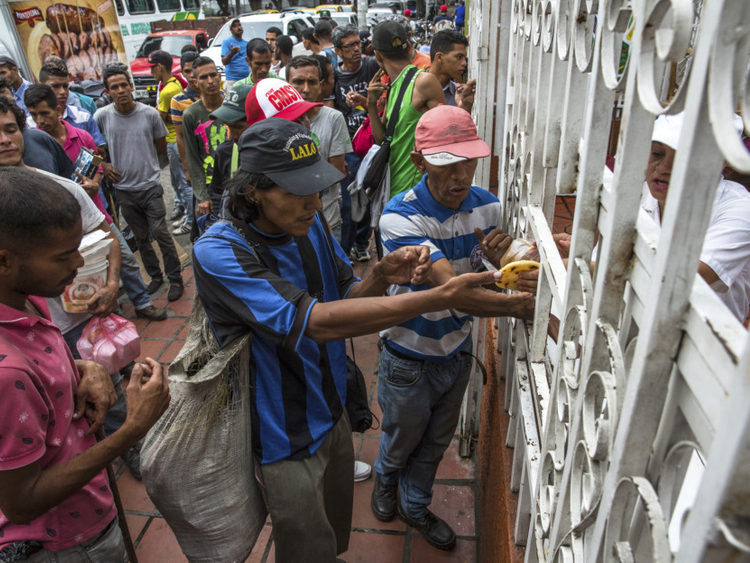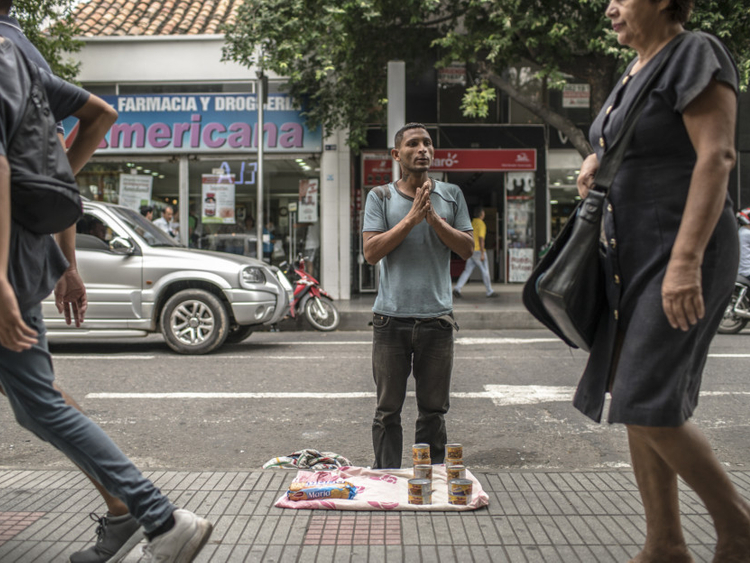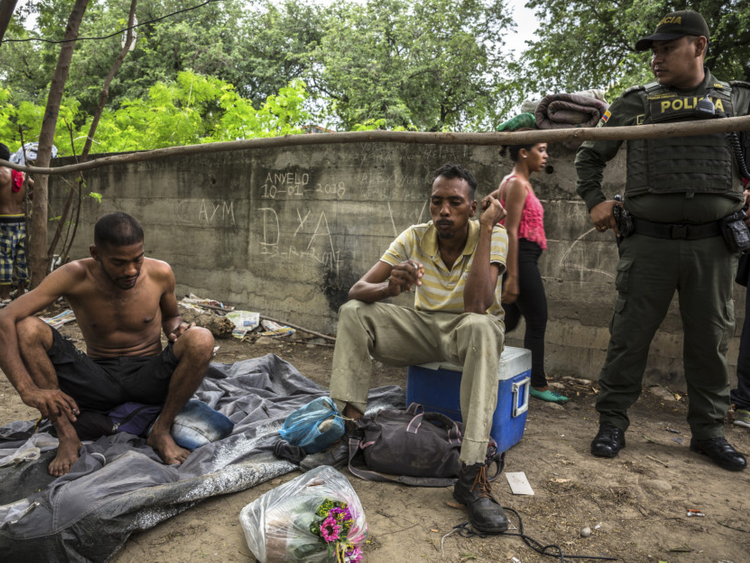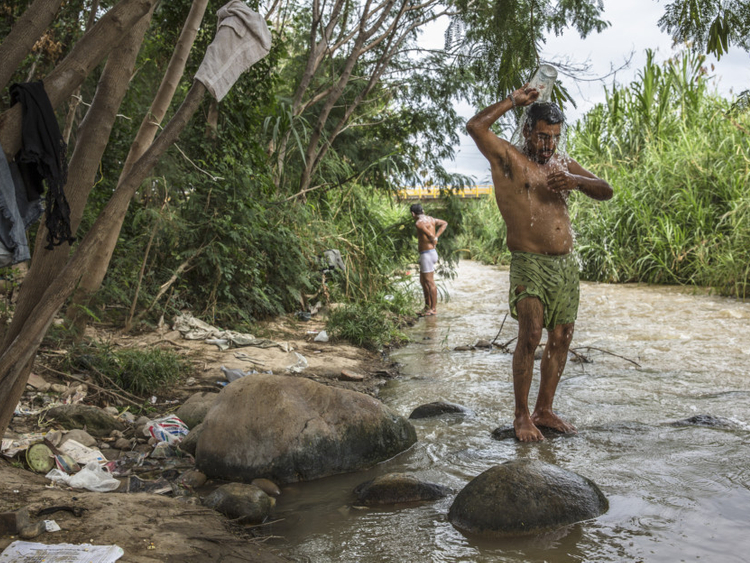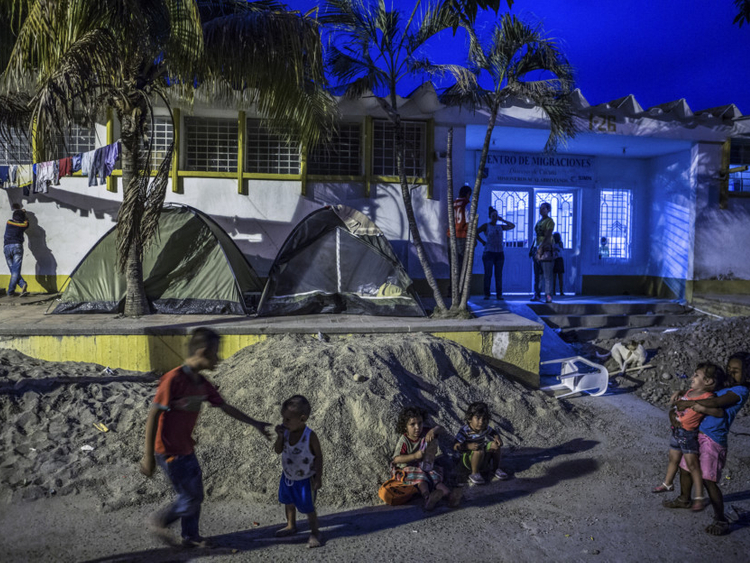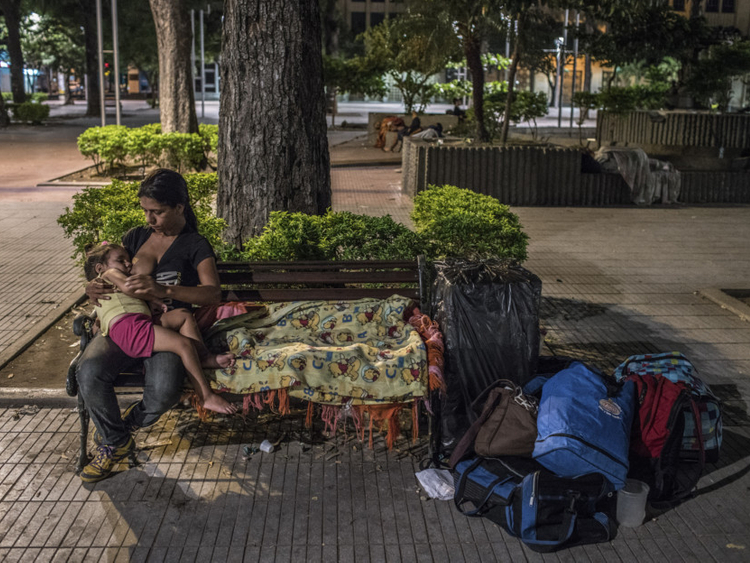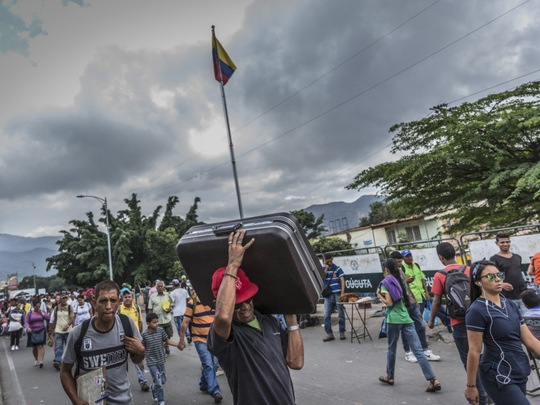
Cucuta , Colombia
For the past three weeks, Wilya Hernandez, her husband and their daughter, 2, have been sleeping on the garbage-strewn streets of Cucuta, a sprawling and chaotic city on Colombia’s side of the border with Venezuela.
Though Antonela, the toddler, often misses meals, Hernandez has no desire to return home to Venezuela.
“I need an angel,” Hernandez said, holding back tears at 1am on a humid recent night. “We can’t go back, and we can’t stay here.”
It is a view shared by thousands of her compatriots who have fled to Cucuta, where the struggles of adapting to life in a new country can seem more attractive than the hunger and upheaval they endured back home.
Without passports or the right to work, thousands of Venezuelans in Cucuta who held down decent jobs back home are now begging for food and change. When work is available, often in construction or reselling contraband candy at traffic signals, pay is low.
‘We are rats to them’
A good day brings in 15,000 Colombian pesos (about Dh20 or $5), which goes to food, water and paying to use bathrooms in cafés. There is seldom anything left over.
“I sold my hair to feed my girl,” Hernandez said, adding that wigmakers now walk the plazas of Cucuta where many Venezuelans congregate, wearing signs advertising that they give cash for hair.
The going rate in the border town for women’s hair is 30,000 pesos, or about $10, less than a third of the price in Bogota, the Columbian capital.
Venezuelans in Cucuta talk of the frosty reception they receive from locals.
“We are rats to them,” Daniel Fernandez, a 20-year old from Caracas, said at Cucuta’s bus terminal, where he helps confused Venezuelans organise onward travel in exchange for donations. Some report that bakery staff in the terminal throw away food at the end of the day, instead of giving it to hungry Venezuelans who sleep on the sidewalk out front.
Freddy Munoz, a 30-year-old from Maracay, Venezuela, sells canned tuna smuggled over the border on the city’s streets. He, too, has problems with locals.
“Drivers don’t brake when I cross the road,” Munoz said, pulling back a dirty sock to reveal his bruised right heel, which was recently scuffed by a passing car. “They say, ‘Go back to your country, Veneco,”.
Miriam Posada, who owns a motorcycle supply shop next to a soup kitchen, remembers when Venezuelans lived comfortably with those from the Colombian side of the border.
“We all got on well, we used to have customers come over from there,” Posada said. “But now, they are scaring people away. ”
A programme granting access to residency for Venezuelans already legally in Colombia was rolled out this month. But Hernandez, her husband and toddler, who did not get passport stamps, now risk deportation under new rules.
“We want to carry on,” she said. “But we have nothing left.”
— New York Times News Service
Venezuela is steeped in economic and political turmoil. Inflation last year surpassed 2,600 per cent, according to opposition lawmakers, which has exacerbated severe shortages of food and medicine.
Venezuela is now governed by a Constituent Assembly, composed of close allies of President Nicolas Maduro. The opposition-controlled Congress has been sidelined, the highest court is stacked with Maduro loyalists, and the national guard has been ordered to take a hard line on any protests.
Maduro has called for presidential elections to be held in April, though neighbouring countries have urged him not to do so given the number of opposition politicians who have been barred from running or have fled.
As authoritarianism continues to tighten its grip on the oil-rich nation, large numbers of its citizens are fleeing. In the last six months of 2017, 210,000 Venezuelans came to Colombia, according to officials, and the numbers are growing in other countries.
In Brazil, the influx has overwhelmed cities and towns in the northern state of Roraima, which borders Venezuela. By the end of last year, an estimated 40,000 Venezuelans had resettled in the state capital, Boa Vista, straining its infrastructure and health system. The rate of crossings has ballooned this year, to several hundred per day, leading Brazil’s military to deploy additional troops to the border.
— Agencies


